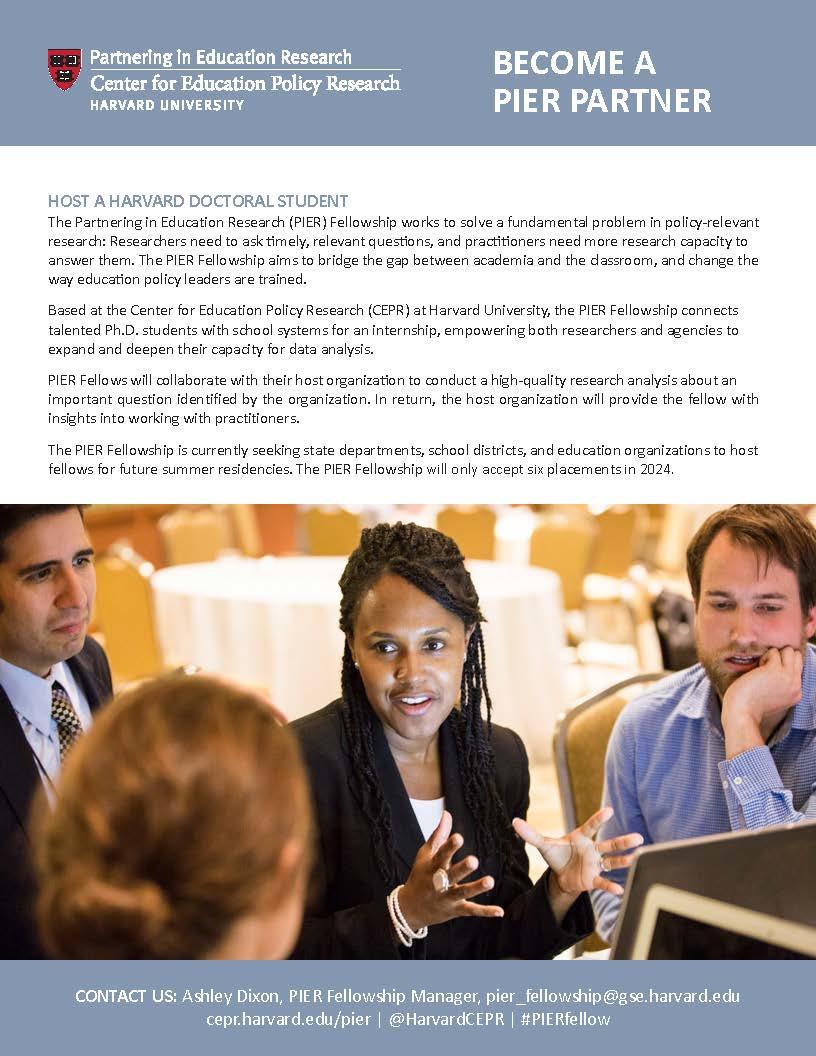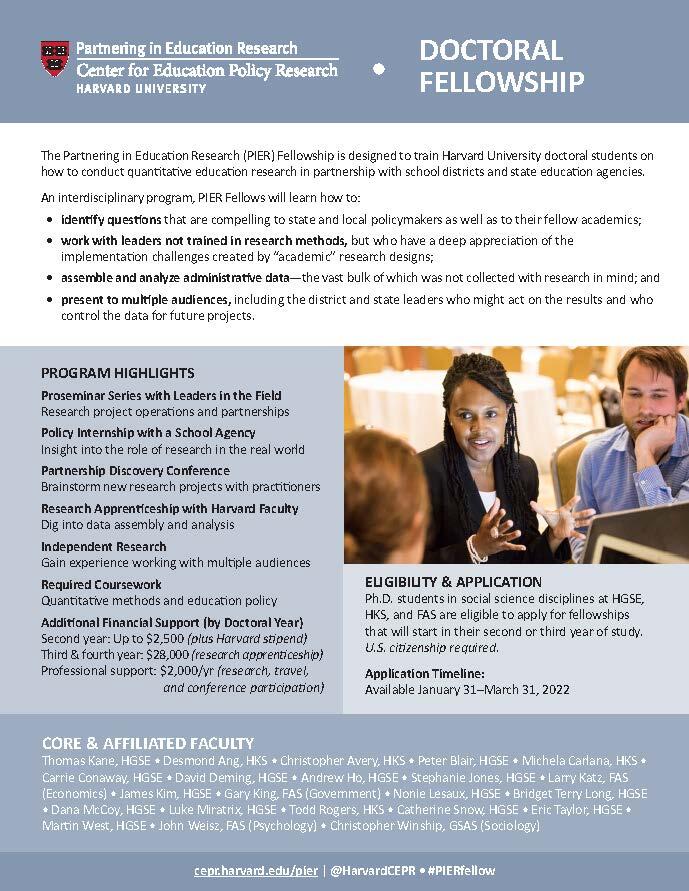PIER Public Seminar Series
Who Becomes a Teacher When Entry Requirements are Reduced?
Tuesday, April 23 | 4:30-5:45 PM EST
Gutman Conference Center E4-5, 6 Appian Way, HGSE
Engage on Social Media:
@HarvardCEPR | #PIERseminar
Facebook Event | LinkedIn Event

Dr. Olivia Chi
Assistant Professor, Boston University Wheelock College of Education & Human Development
Faculty Profile | Website | @OliviaLChi
About the Presentation
Who Becomes a Teacher When Entry Requirements are Reduced? An Analysis of Emergency Licenses in Massachusetts
This presentation will draw on research from two papers:
Bacher-Hicks, Andrew, Olivia L. Chi, Ariel Tichnor-Wagner, and Sidrah Baloch. (2023). Who becomes a teacher when entry requirements are reduced? An analysis of emergency licenses in Massachusetts. (EdWorkingPaper: 23-857). Retrieved from Annenberg Institute at Brown University: https://doi.org/10.26300/8gcv-3694
The COVID-19 pandemic disrupted teacher candidates’ capacity to complete licensure requirements. In response, many states temporarily reduced professional entry requirements to prevent a pandemic-induced teacher shortage. Using mixed methods, we examine the role of the emergency teaching license in Massachusetts, which provided an opportunity for individuals to enter the public school teacher workforce with only a bachelor’s degree. Our results show that emergency licenses increased the supply of teachers in two ways by: 1) providing an entry point for individuals who previously wanted to become teachers but could not meet traditional licensure requirements and 2) expanding the pool of individuals interested in the profession. Among those teachers hired with an emergency license, we find that they were substantially more ethnoracially diverse than their peers with traditional licenses, and they overwhelmingly intend to obtain permanent licensure and remain in the profession. These results suggest that rethinking initial entry requirements may be an effective policy tool to increase the supply of teachers, particularly among teachers of color.
Chi, Olivia L., Andrew Bacher-Hicks, Ariel Tichnor-Wagner, and Sidrah Baloch. (2024). Teacher Licensure and Workforce Quality: Insights from Covid-Era Emergency Licenses in Massachusetts. (EdWorkingPaper: 24-936). Retrieved from Annenberg Institute at Brown University: https://doi.org/10.26300/g5gf-wn55
Much recent debate among policymakers and policy advocates focuses on whether states should reduce teacher licensure requirements to ease the burdens of recruiting high quality teachers to the workforce. We examine the effectiveness of individuals who entered the teacher workforce in Massachusetts during the pandemic by obtaining an emergency license, which requires only a bachelor’s degree. Our results show that, in 2021-22, newly hired emergency licensed teachers: 1) were largely rated as proficient (82%) in their performance evaluation ratings and 2) had similar measures of student test score growth as their traditionally licensed peers. However, we find suggestive evidence that emergency licensed teachers with no prior employment in Massachusetts public schools and no prior engagement with the teacher pipeline (i.e., enrollment in teacher preparation, attempting licensure exams) received lower performance ratings and had lower measures of student test score growth in English Language Arts. Taken together, these results encourage the creation of additional flexibility in licensure requirements for those who have demonstrated prior efforts to join the educator pipeline.
About PIER
The PIER Public Seminar Series is designed to explore important questions and insights in education research and policy.
Events will be in-person and livestreamed via the HGSE YouTube Live account and embedded on this webpage.
Ask questions via Twitter by using #PIERseminar or emailing pier_fellowship@gse.harvard.edu.

